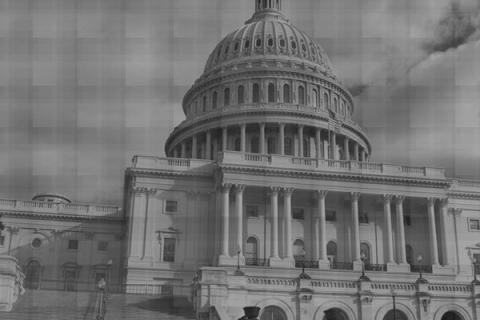The Pentagon's long-promised “cybersecurity plan” was recently unveiled, coinciding with the announcement that 24,000 secret defense files had been stolen by “foreign intruders.” The Defense Department's white paper declares that the Internet is an “operational domain” for war and proposes an increase in resources and personnel that will go towards fighting wars over the Internet. Part of the Pentagon's new cyberspace strategy will include expanded collaboration with the private sector.
The DoD remains tight-lipped on exactly how it will utilize the World Wide Web for offensive strikes, though. Trying to downplay the gravity of the announcement, Deputy Secretary of Defense William Lynn insisted that using the Internet as a warzone “no more militarizes cyberspace than having a navy militarizes the ocean.”
Switching gear, according to a UN report, 2011 is so far the worst year for civilian casualties in the nearly decade-long Afghan war. The civilian death toll for the first six months of 2011 had risen 15 percent over the same period in 2010, which had been the worst year for civilian deaths. Insurgent attacks accounted for some 80 percent of the slayings but an increasing number are because of NATO actions. The report states that 79 civilians have been killed in airstrikes and 30 were murdered in night raids in 2011. NATO concedes that the actual death toll is likely higher because of the difficulty associated with collecting such data.
The second half of 2011 could prove to be just as tragic. Already, in a two week period, there have been 34 civilians killed by airstrikes and six by a Thursday night raid.
In Libya, outraged over civilian deaths in his country, the nation's prosecutor general filed charges against NATO's chief in Libyan court on Wednesday, accusing the alliance of killing 1,108 civilians and wounding 4,500 others since March. Nato's secretary general Anders Fogh Rasmussen told reporters in The Hague Thursday that Nato has "no confirmed information" about possible civilian casualties as a result of its airstrikes and that it's hard to take the claim by the Libyan official seriously.
"We are extremely careful and cautious in identifying legitimate military targets and avoiding civilian casualties," he said.
In another case of debated death tolls, Yemeni security sources have told CNN that a U.S. drone strike in southern Yemen killed at least 50 people, wounding at least a dozen others. U.S. Officials say they were targeting a police station in the al-Wathee district of Abyan province that they claimed was harboring suspected al Qaeda militants. The death toll was “high,” officials claim, because a large group of fighters were gathered at the station with their families.
On Wednesday, Zogby International released its latest “Arab Attitudes” (PDF) public opinion survey. It found that the United State's popularity in the Arab world has plummeted to levels lower than those seen during the Bush administration. Zogby interviewed 4,000 residents from six Arab nations and found that 10 percent or less approve of President Obama's policies.
Only in Lebanon did positive views of the U.S. remain consistent at around 23 percent. In Egypt, U.S. approval ratings nose-dived from 30 percent to just 5 percent. A similar trend was seen in Morocco, Jordan, Saudi Arabia, and the United Arab Emirates (UAE), who were the other nations represented in the poll.
James Zogby, president of the Arab American Institute (AAI), a sponsor of the annual survey, suggests that Arab opinion of the president and the U.S. has worsened over the past two years because president Obama has failed to live up to high expectations created by his 2008 election campaign. These expectations were raised to new highs in June of 2009 when the president offered sympathy for the plight of the Palestinian people in his “new beginning” speech in Cairo.
"Obama didn’t create the problem. He created the expectations that the problem will be solved," Zogby explains.
When questioned about specific policy issues, two stood out from the pack as the biggest obstacles to peace and stability in the region: "continuing [Israeli] occupation of Palestinian lands" and "U.S. interference in the Arab countries." Respondents from Morocco, Egypt and Jordan found the former to take precedence, while pluralities in Lebanon and the UAE thought U.S. interference is a larger threat to security. Majorities in all six countries agreed that Obama's handling of the Israeli-Palestinian issue has worsened U.S.-Arab relations.
"It is noteworthy that the two issues on which the administration has invested considerable energy – ‘the Palestinian issue’ and ‘engagement with the Muslim world’ – received the lowest approval ratings, less than nine percent across the board," said Zogby.

